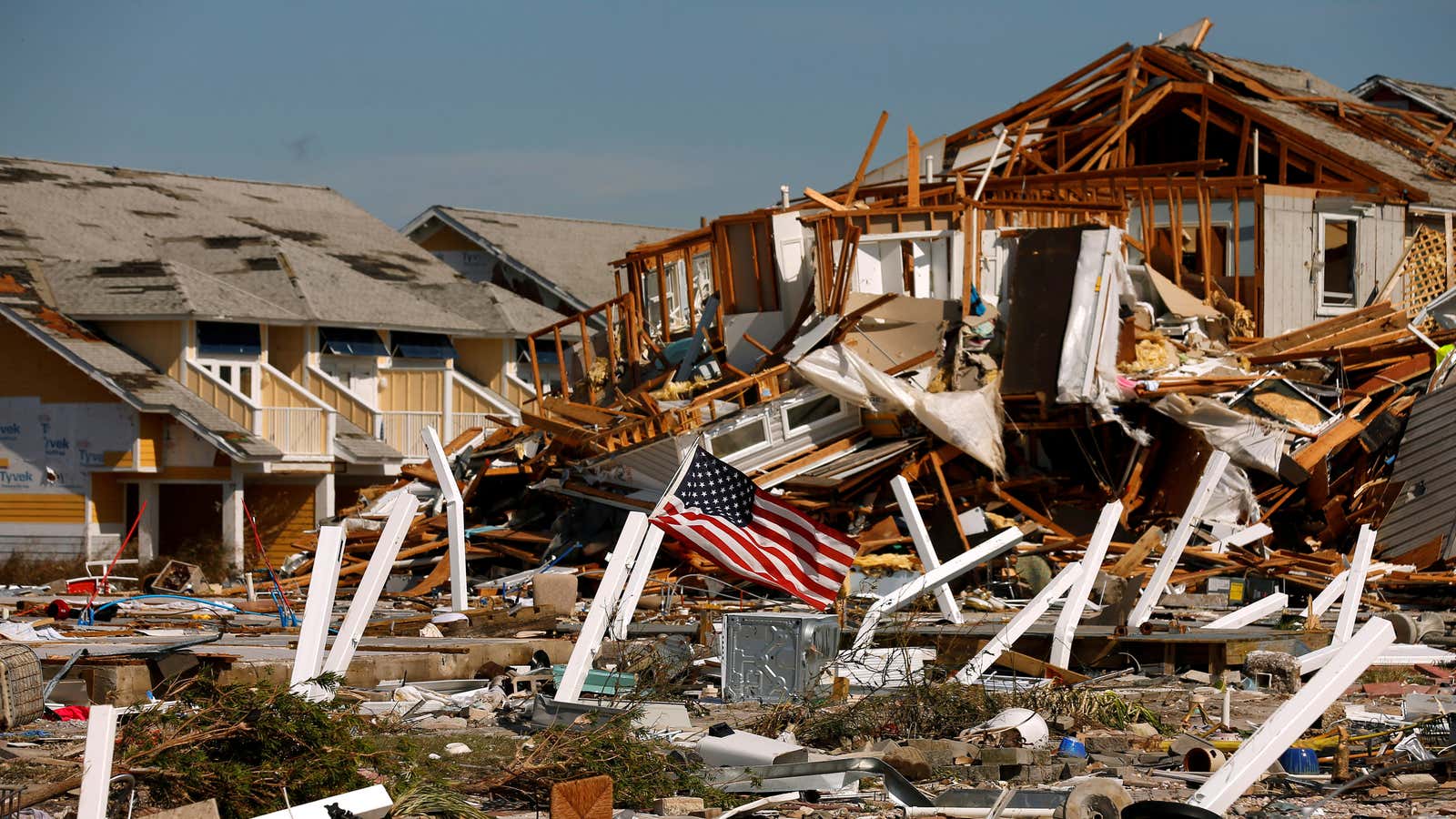By any standard, this has been a remarkable week for conversations about climate change. It started with a grim report from the International Panel on Climate Change, which warned that anything short of dramatic action could cause irreversible harm to the planet, lead to food shortages, and cost the world economy tens of trillions of dollars in damages in as few as 20 years.
Then, the Nobel Prize in economics was awarded to William Nordhaus and Paul Romer for explaining how climate change and technological progress impact long-term economic growth. And the week comes to a close as two deadly storms—Hurricane Michael in the southeast US and Cyclone Titli in eastern India—continue to cause widespread devastation. These extreme weather events are tell-tale signals of global warming.
Part of the solution to climate change, as Nordhaus’s work has shown, is to levy a universal carbon tax. This would punish carbon emitters and incentivize the development of greener technologies. While more work needs to be done to further integrate climate change into economic models, many leading economists agree that a global price on carbon is the way forward.
The trouble is that politics gets in the way. In the US, the Trump administration is determined to roll back environmental standards and play fiddle with the Paris climate agreement. Sadly, even countries that agree on the need for strong climate action are not doing enough. Of the countries that put a price on carbon, most don’t have a tax high enough to meet climate targets, according to a report published last month by the OECD.
But there are signs that more meaningful action isn’t out of reach. The European Bank for Reconstruction and Development has declared that solar- and wind-power projects are now the cheapest new power plants to build almost anywhere in the world (paywall). The World Bank has vowed not to fund any more coal-power projects and it has established an internal carbon-pricing system to decide whether to fund any new project.
The influential corporations that aren’t toeing the line are being targeted. Climate activists aren’t just going after the usual suspects, such as Big Oil, but also after pension funds that finance fossil-fuel firms (paywall).
Speaking of finance, insurance companies are now hiring climatologists to better price the risks the world is facing (paywall). Venture capitalists and asset managers are investing in climate-resilient real estate, flood management, and hotels near storm-prone regions, expecting that as climate change gets worse, their investments will produce greater returns.
“I would love to give up these investment opportunities in a second if people would listen and stop polluting the environment,” one investor told Bloomberg (paywall). Until, then, however, his investments can serve as a societal warning. “If people are making money off it, that gets attention.”
Even if all of these actions convinced officials to impose a stiff tax on carbon tomorrow, it won’t be enough to mitigate all the harm coming our way. Environmentalists are right that economic growth can never be completely benign. That doesn’t mean we should make perfect the enemy of the good. The story of human development has been one of squeezing more output from the same amount of resources. That makes one of the newest Nobel laureates optimistic about our capacity to combat climate change. I’d like to agree with him.
A shorter version of this post was published in the weekend edition of the Quartz Daily Brief, our news summary that’s tailored for morning delivery in Asia, Europe and Africa, or the Americas. Sign up for it here.
